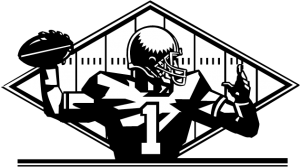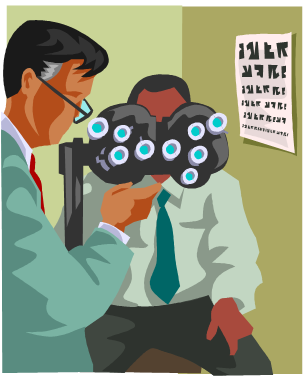 When a medical professional examines someone in the emergency room, he or she looks for signs of physical distress. How is the patient breathing? What about their skin color? Are their eyes dilated? Where are the visible signs of trauma? All of this (and more) is necessary to know before treating the person. After all, applying the wrong treatment can be more harmful than ignoring the physical distress.
When a medical professional examines someone in the emergency room, he or she looks for signs of physical distress. How is the patient breathing? What about their skin color? Are their eyes dilated? Where are the visible signs of trauma? All of this (and more) is necessary to know before treating the person. After all, applying the wrong treatment can be more harmful than ignoring the physical distress.
Companies experience distress.
You do not have to look far to see signs of that distress. Talk with people that have survived a series of layoffs and reorganizations. Ask them about the constant worry of losing their jobs while coping with a series of changed assignments. Question them about the difficulty of trying to do ordinary business when management has severely reduced their flexibility to spend money or take risks. Watch how people talk about the future and their hopes. When you do these things, you begin to see severe distress.
Strategy and competitive intelligence organizations are suffering.
Within companies today, the current priority for many is simple survival. There is no shame, of course, with this objective. It does force hard decisions. One decision is to focus maniacally on preserving cash. That means two things – reduce expenses to the barebones and pursue short-term sales. Consequently, other things suffer. For example, many curtail or deemphasize strategy and competitive intelligence. This produces a specific kind of distress.
Here are five signs of business strategy or competitive intelligence distress.
 In the never ending quest to define, explain and sell competitive intelligence, we sometimes resort to analogy. When the analogy is a familiar one, maybe our listeners will grasp that key fact that we have thus far struggled to express.
In the never ending quest to define, explain and sell competitive intelligence, we sometimes resort to analogy. When the analogy is a familiar one, maybe our listeners will grasp that key fact that we have thus far struggled to express. In my day, I was quite the basketball player. My reputation was cemented on the backyard court where I dominated my two friends. They couldn’t beat me no matter what strategies they devised. Trying outside shots didn’t work. Driving to the left or right didn’t gain them any advantage. Tricky passes were futile against me. There was nothing that they could do to win. I knew their game and the limitations of their ability because I studied them every day (the early days of my competitive intelligence career). That information let me anticipate and counter anything that they tried to do. Ah, the memories of the victories are still sweet.
In my day, I was quite the basketball player. My reputation was cemented on the backyard court where I dominated my two friends. They couldn’t beat me no matter what strategies they devised. Trying outside shots didn’t work. Driving to the left or right didn’t gain them any advantage. Tricky passes were futile against me. There was nothing that they could do to win. I knew their game and the limitations of their ability because I studied them every day (the early days of my competitive intelligence career). That information let me anticipate and counter anything that they tried to do. Ah, the memories of the victories are still sweet. Every year, I visit my friend the optometrist. One thing that I can count on is answering a lot of black and white questions as I stare through various lenses. You know the routine. Is this one better? Or, is this one better? Over and over again the black and white decision is required. This is how my doctor narrows down the choices about which lens will provide the best correction for each of my eyes. That way, he will know precisely what eye glass prescription that I should have.
Every year, I visit my friend the optometrist. One thing that I can count on is answering a lot of black and white questions as I stare through various lenses. You know the routine. Is this one better? Or, is this one better? Over and over again the black and white decision is required. This is how my doctor narrows down the choices about which lens will provide the best correction for each of my eyes. That way, he will know precisely what eye glass prescription that I should have.